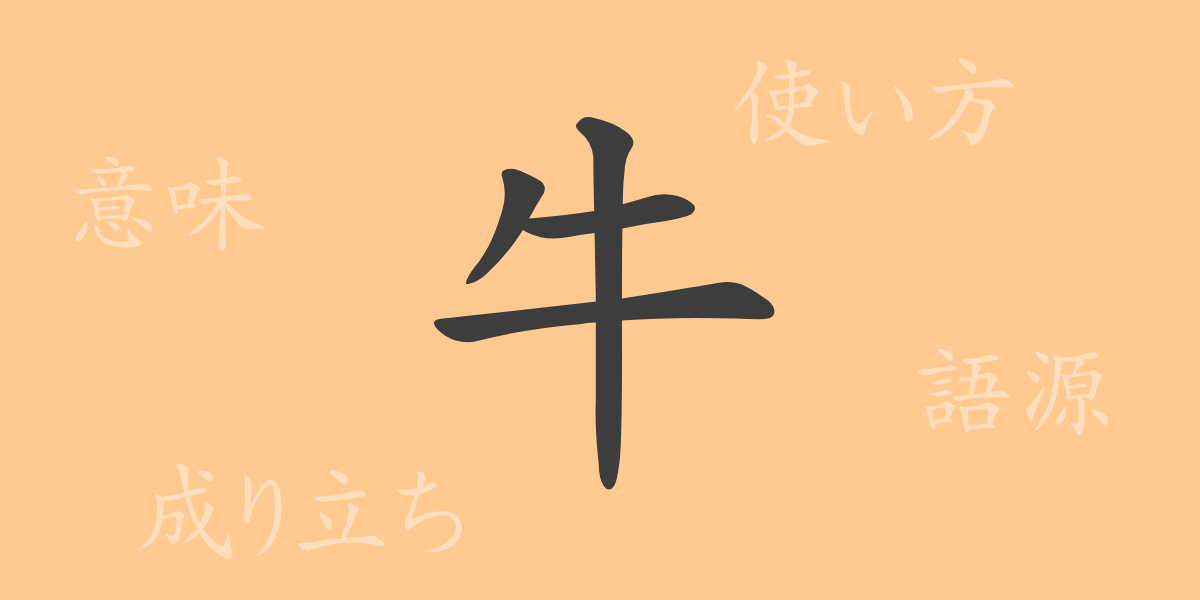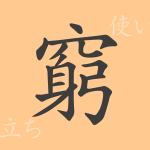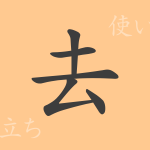The kanji deeply embedded in Japanese culture carry rich history and meaning within each character. “牛(うし, ushi)” is a creature intimately connected to our daily lives and plays a crucial role in the world of language. This article delves into the common kanji “牛(うし, ushi),” exploring its origin, usage, idioms, and proverbs to uncover its allure.
Origin of 牛(うし, ushi)
In ancient China, the character for “牛(うし, ushi)” was an ideograph representing a large animal with horns on its head. In oracle bone script, its shape was believed to mimic the actual head and body of a cow, evolving through various forms to its present-day shape. As the character suggests, cows have been indispensable to human life since ancient times, used in agriculture and transportation.
Meaning and Usage of 牛(うし, ushi)
The kanji “牛(うし, ushi)” directly refers to bovine animals. However, it is also widely used metaphorically and in idioms and compounds. For instance, “牛耳る(ぎゅうじる, gyūjiru)” means to control a group or organization, and “牛の歩み(うしのあゆみ, ushi no ayumi)” describes very slow progress. These usages reflect how the characteristics and behaviors of cows are metaphorically applied to human life and emotions.
Readings, Stroke Count, and Radical of 牛(うし, ushi)
The kanji “牛(うし, ushi)” is fundamental knowledge in Japanese reading and writing.
- Readings: The on-yomi (Chinese reading) is “ギュウ(ぎゅう, gyū),” and the kun-yomi (Japanese reading) is “うし(ushi).”
- Stroke count: The kanji has 4 strokes in total.
- Radical: The radical is 牛部(うしへん, ushihen).
Idioms, Proverbs, and Expressions Using 牛(うし, ushi)
Numerous idioms, proverbs, and expressions feature the kanji “牛(うし, ushi).” For example, “牛に引かれて善光寺参り(うしにひかれてぜんこうじまいり, ushi ni hikarete zenkōji mairi)” refers to being unintentionally led to a good outcome, while “牛の一声(うしのひとこえ, ushi no hitokoe)” signifies a decisive remark from an authoritative person. The proverb “釘を打つより牛を盗むが易し(くぎをうつよりうしをぬすむがやすし, kugi wo utsu yori ushi wo nusumu ga yasushi)” suggests that bold actions are surprisingly easier to accomplish. These expressions use the imagery and symbolism of cows to depict various aspects of life.
Summary of 牛(うし, ushi)
The kanji “牛(うし, ushi)” is deeply embedded in Japanese language, carrying profound meaning and history. Its presence in our lives and language demonstrates its enduring value from ancient times to today. Whether in agriculture or linguistic expression, cows play a significant role in Japanese culture. Through this article, we hope you can appreciate the rich background of this fascinating character.

























